Mathematics
Mathematics is the study of numbers, quantity, structure, space, and change. It is a fundamental science that underpins many other fields of study and is essential for understanding the world around us.
Key Concepts in Mathematics
- Arithmetic: The basic mathematical operations of addition, subtraction, multiplication, and division.
- Algebra: The study of mathematical symbols and the rules for manipulating these symbols.
- Geometry: The study of shapes, sizes, and properties of space.
- Calculus: The study of change and motion through the concepts of derivatives and integrals.
- Statistics: The collection, analysis, interpretation, presentation, and organization of data.
Study Guide for Mathematics
When studying mathematics, it is important to understand the foundational concepts and build upon them. Here are some tips for studying mathematics:
- Practice Regularly: Mathematics is a subject that requires regular practice. Work on problems consistently to reinforce your understanding.
- Understand the Fundamentals: Make sure you have a strong grasp of basic arithmetic and algebraic concepts before moving on to more advanced topics.
- Visualize Concepts: Use diagrams and visual aids to help understand geometric and spatial concepts.
- Seek Help When Needed: If you encounter difficulties, don't hesitate to ask for help from teachers, tutors, or online resources.
- Apply Mathematics in Real Life: Look for opportunities to apply mathematical concepts in real-world scenarios to understand their practical relevance.
By following these study tips and understanding the key concepts in mathematics, you can build a strong foundation in this fundamental field of study.
.◂Science Worksheets and Study Guides Eighth Grade. The Digestive System & Nutrition
Study Guide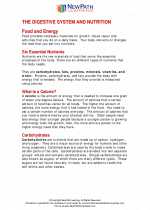 The Digestive and nutrition
The Digestive and nutrition  Worksheet/Answer key
Worksheet/Answer key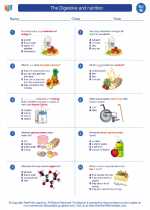 The Digestive and nutrition
The Digestive and nutrition  Worksheet/Answer key
Worksheet/Answer key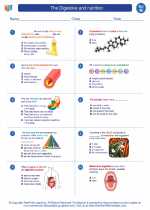 The Digestive and nutrition
The Digestive and nutrition  Worksheet/Answer key
Worksheet/Answer key The Digestive and nutrition
The Digestive and nutrition  Vocabulary/Answer key
Vocabulary/Answer key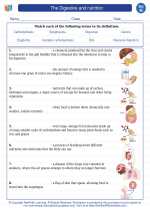 The Digestive and nutrition
The Digestive and nutrition  Vocabulary/Answer key
Vocabulary/Answer key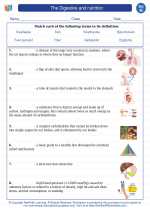 The Digestive and nutrition
The Digestive and nutrition  Vocabulary/Answer key
Vocabulary/Answer key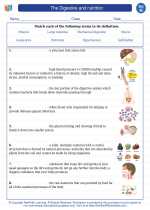 The Digestive and nutrition
The Digestive and nutrition  Vocabulary/Answer key
Vocabulary/Answer key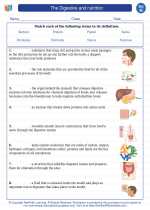 The Digestive and nutrition
The Digestive and nutrition  Vocabulary/Answer key
Vocabulary/Answer key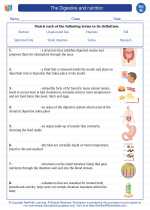 The Digestive and nutrition
The Digestive and nutrition 

 Worksheet/Answer key
Worksheet/Answer key
 Worksheet/Answer key
Worksheet/Answer key
 Worksheet/Answer key
Worksheet/Answer key
 Vocabulary/Answer key
Vocabulary/Answer key
 Vocabulary/Answer key
Vocabulary/Answer key
 Vocabulary/Answer key
Vocabulary/Answer key
 Vocabulary/Answer key
Vocabulary/Answer key
 Vocabulary/Answer key
Vocabulary/Answer key

The resources above cover the following skills:
Reading Standards for Literacy in Science and Technical Subjects
Craft and Structure
Determine the meaning of symbols, key terms, and other domain-specific words and phrases as they are used in a specific scientific or technical context relevant to grades 6-8 texts and topics.